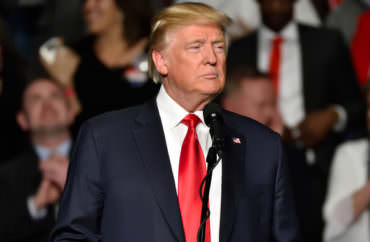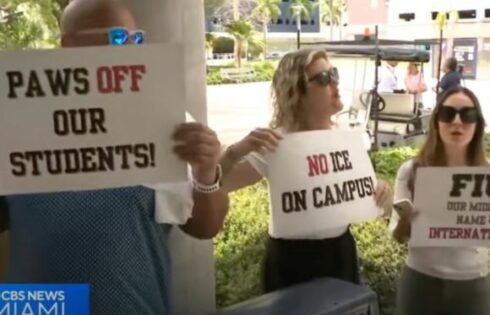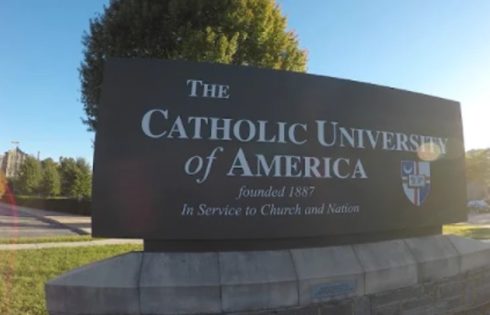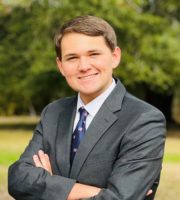
Law professors disagree on how to apply 14th Amendment
When the Supreme Court hears arguments in Trump v. Anderson on Thursday, it will consider arguments that have been put forth by law professors who disagree on whether the former president is eligible to run again.
But the differing opinions are not cleanly cut across partisan lines, as one libertarian professor has argued that Colorado was correct to say President Donald Trump should be barred from the ballot due to his alleged role in the violence at the U.S. Capitol on Jan. 6, 2021.
Several Federalist Society-affiliated professors have also taken this view, citing the 14th Amendment’s clause about insurrectionists not being able to run for president.
The College Fix contacted one professor who argued for disqualifying Trump from the ballot to ask if his argument could be interpreted as asserting “speech is violence” and if courts, rather than voters, should be deciding who can run for president.
Ilya Somin, a policy scholar at the Cato Institute and law professor at George Mason University, told The Fix that speech can be used to motivate violence and said that Trump did that on Jan. 6 during the Capitol riot.
“The argument is not that ‘speech is violence’ but that speech can be part of a process of planning and encouraging violence, and using it as leverage to gain your ends,” Somin said. He filed an amicus brief in support of Colorado’s position that it can remove Trump from the ballot.
“That’s what Trump did here (the latter when he kept calling members of Congress to try to pressure them to reject the election results even as the Capitol was under attack, thus using the attack as leverage),” Somin said.
Somin also said that courts have the authority to decide which candidates are eligible to appear on ballots. He compared Trump’s case to those filed in 2016 questioning Sen. Ted Cruz’s eligibility to run for president given that he was born in Canada.
“Courts can and should determine issues about who is legally eligible to be president or hold other elected offices,” Somin said.
“Indeed, Trump and his supporters themselves recognized that when they filed cases in 2016 arguing that Ted Cruz (Then Trump’s main rival for the GOP nomination) was ineligible because (they contended) he was not a ‘natural born’ citizen as required by the Constitution,” he said.
“Cruz won those cases,” Somin said. “But no one – least of all Trump supporters – denied courts had a right to resolve the issue. The same reasoning applies here,” he said.
Somin concluded by saying the courts are reasonable in their attempt to block a candidate from the ballot who has previously tried to “undermine democracy.”
“In addition, there is good reason to protect democracy against candidates for office who themselves have a track record of trying to undermine democracy by resorting to force and fraud when they lose an election,” Somin said.
MORE: Professors fret about Trump running again
John Yoo, a University of California Berkeley law professor and former Department of Justice official under President George W. Bush, objected to the idea that the 14th Amendment should be used by the courts to disqualify Trump from running.
“I think that this question should be left to the voters to decide,” Yoo told The Fix via email. “The text of the Fourteenth Amendment does not include the President, either as a former office holder or as a future office holder, in its disqualification provisions.”
“The ratifiers of the amendment left the decision on how to hold a candidate for President responsible up to the ballot box, not the courtroom,” Yoo said.
Yoo, who recently filed an amicus brief supporting Trump in the case, said that he expects that the Supreme Court will reverse the decision of the Colorado court and validate Trump’s eligibility to run for president.
He also said removing Trump from the ballot “would be damaging to our political system.”
A co-founder of the Federalist Society and professor at Northwestern Law initially agreed with the argument to remove Trump from the ballot but changed his mind in a recent letter to the Wall Street Journal.
“Looked at in the context of the Disqualification Clause of the 14th Amendment, the president is neither an ‘officer of the United States,’ nor, obviously, a ‘member of Congress,’” Professor Steven Calabresi wrote. “That must be why the Constitution prescribes a separate oath for the president.”
“As a result, former President Donald Trump isn’t covered by the Disqualification Clause, and he is eligible to be on the ballot in the 2024 presidential election,” Calabresi wrote.
Civil libertarian and left-leaning George Washington University Professor Jonathan Turley cautioned against using the 14th Amendment as a tool to bar certain candidates from running for office.
“If we are to suddenly convert the 14th Amendment into a running barrier to those who seek to challenge election results, then we have to establish a bright line to distinguish such cases,” Turley wrote in The Hill.
“There is a simpler and more obvious explanation for what occurred on Jan. 6, 2021: A political protest became a political riot, and a constitutional theory became constitutional legend,” he wrote.
Harvard University Professor Alan Dershowitz said that using an amendment ratified over 150 years ago to disqualify Trump would only elevate the partisan divide in the country.
He said the use of the 14th Amendment to disqualify Trump “would create yet another divisive weapon in our increasingly partisan war,” in an August 2023 essay for Compact.
MORE: Evangelical voters and Trump are ‘enemies’ of democracy, professor says
IMAGE: Evan El-Amin/Shutterstock
Like The College Fix on Facebook / Follow us on Twitter






Please join the conversation about our stories on Facebook, Twitter, Instagram, Reddit, MeWe, Rumble, Gab, Minds and Gettr.